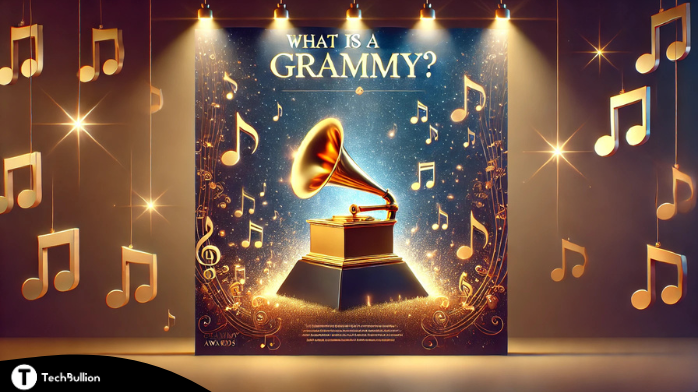
What is a Grammy, often simply referred to as “the Grammys,” are among the most prestigious accolades in the music industry. Awarded annually by the Recording Academy, the Grammys honor artistic achievement, technical proficiency, and overall excellence in the recording arts, without regard to album sales or chart position. But what exactly is a Grammy, and why does it hold such immense value in the world of music? Let’s dive deep into the history, categories, significance, and controversies surrounding this iconic award.
The Origins of the Grammy Awards
The Grammy Awards were first established in 1959 as a way to recognize and honor outstanding achievements in the music industry. The awards are presented by the Recording Academy, originally known as the National Academy of Recording Arts and Sciences (NARAS). The idea was to create a music-centric award similar to the Oscars for film and the Emmys for television.
The name “Grammy” is derived from the gramophone, an early playback device for recorded sound. The iconic Grammy trophy, a gold-plated gramophone, symbolizes the award’s deep connection to the history of recorded music.
Purpose and Significance of the Grammy Awards
The Grammy Awards aim to:
- Celebrate Artistic Excellence: The primary purpose is to honor artists who have demonstrated exceptional skill and creativity in their music.
- Highlight Industry Standards: The awards encourage innovation and set benchmarks for quality in the recording arts.
- Promote Diverse Genres: With over 80 categories, the Grammys recognize a wide variety of musical styles, from pop and rock to classical and world music.
Winning a Grammy can elevate an artist’s career, providing validation, industry recognition, and often a significant boost in album sales and streaming numbers.
Categories of the Grammy Awards
The Grammys cover a broad spectrum of music through various categories, divided into four general fields and numerous specific ones. Here’s an overview:
- General Field (“Big Four”):
- Record of the Year: Awarded to the artist(s), producer(s), and engineers of a single track.
- Album of the Year: Recognizes the entire album and the people involved in its production.
- Song of the Year: Focuses on the songwriting, awarding the composer(s) of a track.
- Best New Artist: Honors a breakthrough artist making a significant impact.
- Genre-Specific Categories:
- Pop: Best Pop Vocal Album, Best Pop Solo Performance.
- Rock and Metal: Best Rock Album, Best Metal Performance.
- Hip-Hop/Rap: Best Rap Album, Best Rap Performance.
- Country: Best Country Album, Best Country Solo Performance.
- Specialty Categories:
- Classical: Best Classical Instrumental Solo, Best Opera Recording.
- Global Music: Recognizes music from various cultural traditions.
- Spoken Word: Includes audiobooks, poetry, and storytelling.
- Technical Awards:
- Best Engineered Album (Non-Classical and Classical).
- Producer of the Year.
The Grammy Nomination and Voting Process
The Grammy nomination process is meticulous to ensure fairness and integrity:
- Submission: Artists, producers, and record labels submit their works for consideration.
- Screening: Submissions are reviewed to ensure they meet eligibility requirements and are placed in the correct categories.
- Nomination: Members of the Recording Academy vote to determine the nominees in each category.
- Final Voting: Academy members vote for the winners, ensuring only those with expertise in specific genres cast their votes for those categories.
The Recording Academy comprises professionals from various sectors of the music industry, including artists, producers, and engineers, ensuring a well-rounded voting process.
The Global Impact of the Grammy Awards
Winning a Grammy is not just a U.S.-centric achievement; it has a global impact. International artists, from Adele to BTS, have benefited from the prestige of the award. For many, a Grammy signifies the pinnacle of success in the music world.
The Grammys also showcase global talent, with categories like Best Global Music Album and performances by international artists, highlighting the industry’s diversity and reach.
Criticisms and Controversies
Despite its prestige, the Grammys have faced criticism over the years:
- Lack of Diversity: The Recording Academy has been accused of underrepresenting women and artists of color in major categories.
- Genre Bias: Some argue that genres like hip-hop and electronic music are often overlooked in the “Big Four” categories.
- Snubs and Surprises: Fans and artists alike have expressed frustration over perceived injustices, such as notable artists not receiving awards despite critical acclaim.
- Transparency: Questions about the nomination and voting processes have led to calls for greater transparency.
The Recording Academy has taken steps to address these issues, including diversifying its membership and revising voting rules.
The Evolution of the Grammy Awards
Over the decades, the Grammys have evolved to reflect changes in the music industry. For instance:
- Digital Revolution: With the rise of streaming, the Grammys have adjusted their eligibility criteria to include non-physical formats.
- New Categories: The introduction of awards like Best Music Video and Best Song for Social Change acknowledges shifts in how music is created and consumed.
- Inclusivity: Efforts to include more diverse voices and genres have led to increased representation of global and independent artists.
Memorable Grammy Moments
The Grammy Awards have delivered countless unforgettable moments:
- Michael Jackson’s Thriller Domination (1984): Jackson won eight Grammys in one night, setting a record.
- Whitney Houston’s “I Will Always Love You”: Her performance and wins cemented her legacy.
- Beyoncé’s Record-Breaking Wins: As of 2023, Beyoncé holds the record for the most Grammy wins by a single artist.
These moments not only celebrate music but also become cultural milestones.
Why the Grammy Still Matters
In a world where music consumption is increasingly fragmented, the Grammys serve as a unifying event, bringing together fans and industry professionals to celebrate the art form. While no award show is perfect, the Grammy remains a powerful symbol of achievement in the music industry.
Conclusion
So, what is a Grammy? It’s more than just a trophy. A Grammy represents the highest honor in the music world, celebrating creativity, talent, and the impact of music on our lives. From its historical roots to its modern-day evolution, the Grammy continues to inspire artists and fans alike, setting the gold standard for musical excellence. Whether you’re an aspiring musician or a passionate listener, the Grammys are a reminder of the transformative power of music.



